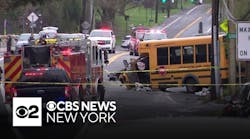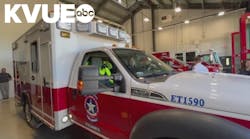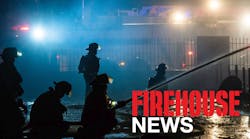Everyone accepts that when a firefighter dies in the line of duty there has to be a thorough and impartial investigation to determine what went wrong - what new lessons have to be learned and what old lessons were ignored and need to be re-emphasized. The investigation should be conducted immediately and its recommendations should be made known to the entire fire-rescue service without delay so that steps can be taken to prevent similar fatalities. It also is essential to establish accountability when a line-of-duty death occurs, which is why an outside agency has to conduct an investigation that is independent of the local fire department.
While fire leaders agree on why an investigation is necessary, there are differences of opinion over who should conduct the inquiry and how it should be done. And, there is widespread dissatisfaction with the way it currently is being done by the National Institute for Occupational Safety and Health (NIOSH), part of the U.S. Centers for Disease Control and Prevention (CDC) and the federal agency charged with investigating firefighter line-of-duty deaths.
An investigative story by reporter Bill Dedman of MSNBC.com revealed that many firefighter deaths are not being investigated and that NIOSH is incredibly slow to respond. It may be weeks or months before their investigators get to the scene of a fire and, when a final report is written, it may be a year or more before it is released - if it is released. No special effort is made to disseminate the information to the fire-rescue service and to alert fire departments that there may be a problem with equipment, protective devices or tactics they are using.
Furthermore, the NIOSH investigators do not come from the fire service. They have never been inside a burning building and have no first-hand experience in understanding what happens when a fire department responds to an alarm and goes into action at a working fire. According to the MSNBC.com story, the only fire protection engineer employed by NIOSH was Eric Schmidt, a former fire captain, who was fired when he attempted to improve and bring a sense of urgency to the investigative process. With "only" $2.5 million budgeted for these investigations, CDC claims that NIOSH doesn't have the mandate, the resources or the personnel to carry out the type of investigations that Schmidt tried to do.
It was 1998, during the Clinton administration, when these investigations were taken away from the U.S. Fire Administration (USFA) and given to the CDC. The move had strong support from the International Association of Fire Fighters (IAFF) and other fire organizations who were dissatisfied with the USFA's reports. But, as things have turned out, the CDC-NIOSH performance has been worse.
The union and the International Association of Fire Chiefs (IAFC) have organized a joint task force to look into the problem and come up with recommendations to improve the investigative process and the reporting of line-of-duty deaths. Other fire organizations, including the National Fallen Firefighters Foundation, are participating in the task force conference calls, which began last month. (FYI: The Foundation has not taken a position on this issue and the opinions expressed in this column are strictly my own.)
Chief David Fulmer of Miami Township, OH, is co-chairman of the task force and says their objective is to draw the model for an investigative body that can fit into any agency. "We know what we want it to look like...but haven't decided where it should go," he explains. There is sentiment for the "Go Team" approach of the National Transportation Safety Board (NTSB), which has its expert investigators on the way to a bus, train or airplane accident within a few hours. Wherever it fits, the line-of-duty death team will have to get more money from Congress to maintain the personnel and resources that are needed to do the job.
At this point, the IAFF and the IAFC believe it should stay with NIOSH and the CDC. I disagree. They may be brilliant scientists, but they don't understand the fire service and don't have the commitment or sense of urgency that is required to investigate firefighter deaths. I think this responsibility - and the resources to do it - should be given back to the USFA, where the investigations would be conducted by experienced fire officers who understand the problem and the importance of quickly determining what went wrong.
Local fire departments can and should continue to conduct their own investigations, but outside help is needed. Unfortunately, there have been situations in which it has been difficult for a fire department to hold its own people accountable for bad decisions or policies that resulted in line-of-duty deaths. Tragic incidents were treated as being "part of the job" and there was no accountability or sharing of information. We know that a firefighter's work is inherently dangerous, but we must never accept line-of-duty deaths as inevitable when we know from experience that they are preventable.
HAL BRUNO, a Firehouse contributing editor, retired as political director for ABC News in Washington and served almost 40 years as a volunteer firefighter. He is a director of the Chevy Chase, MD, Fire Department and chairman of the National Fallen Firefighters Foundation.





